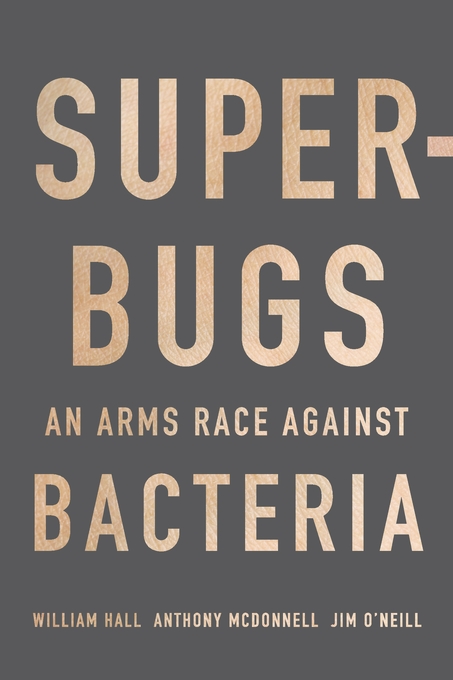 Antibiotics – drugs that can prevent and treat infections – are becoming less effective as a result of drug resistance. Anthony McDonnell gives an overview of the current situation and its causes, and outlines some of the actions that can be taken to prevent the rise of resistance and its catastrophic consequences.
Antibiotics – drugs that can prevent and treat infections – are becoming less effective as a result of drug resistance. Anthony McDonnell gives an overview of the current situation and its causes, and outlines some of the actions that can be taken to prevent the rise of resistance and its catastrophic consequences.
There have been bacteria on this planet for at least the last 3.5 billion years. For the entirety of our species’ existence we have relied on bacteria to aid us in breaking down food, whilst being helpless to guard against their wrath whenever we had a bacterial infection. It wasn’t until the late 19th century that more powerful microscopes lead us to understand what bacteria were and how the infections spread, in what was known at the time as ‘germ theory.’
Understanding how bacteria made people unwell led us to greatly improve hygiene; with large government programmes to build sanitation systems, doctors started to wash their hands and utensils, and people started to drink clean water. These changes, along with other medical innovation, lead to dramatic improvements in people’s health: in 1900 one in every 125 Americans were killed every year by infection and life expectancy was just 46; by 1941, it had risen to 65 and the number of people dying annually from infections had fallen to just one in 500. It was in this year that humans finally took the upper hand in our battle to stave of infection, when a research team in Oxford demonstrated how penicillin can cure bacterial infections. By 1955 just one in every 1670 Americans were killed by infections annually (the rate has plateaued since then).
Over the next few decades, antibiotics transformed modern medicine, not only allowing us to treat people who had bacterial infections, but also creating a safety net for other areas of medicine. Doctors can now treat other illnesses through surgery or by using drugs that have the unfortunate side effect of greatly lower immune systems (such as chemotherapy), with the knowledge that if someone picks up a bacterial infection, it can be treated.
 Sadly, however, this was not the end of the story. Every time bacteria come into contact with antibiotics there is the possibility that through a process of natural selection, they may evolve to evade the drugs, creating what is referred to as ‘superbugs’. These superbugs can often not be killed by antibiotics. They have altered their membranes so the antibiotic cannot get into their cell, developed efflux pumps to remove the antibiotic from their system or learned to make enzymes that break down the antibiotic. In the early years of antibiotic development researchers were able to come up with enough new antibiotics to replace the ones that we had lost to resistance, but this is no longer the case. There has not been a new class of antibiotic able to treat gram-negative bacteria since the 1980s. This has led to a slowly-building crisis that kills 58,000 neonates in India every year and about 1.5 million people globally. If we do not start to take robust action against superbugs, then we are looking at returning to an era where bacteria are once again a major killer for which there is no cure.
Sadly, however, this was not the end of the story. Every time bacteria come into contact with antibiotics there is the possibility that through a process of natural selection, they may evolve to evade the drugs, creating what is referred to as ‘superbugs’. These superbugs can often not be killed by antibiotics. They have altered their membranes so the antibiotic cannot get into their cell, developed efflux pumps to remove the antibiotic from their system or learned to make enzymes that break down the antibiotic. In the early years of antibiotic development researchers were able to come up with enough new antibiotics to replace the ones that we had lost to resistance, but this is no longer the case. There has not been a new class of antibiotic able to treat gram-negative bacteria since the 1980s. This has led to a slowly-building crisis that kills 58,000 neonates in India every year and about 1.5 million people globally. If we do not start to take robust action against superbugs, then we are looking at returning to an era where bacteria are once again a major killer for which there is no cure.
In our recent book ‘Superbugs: An Arms Race Against Bacteria,’ Will Hall, Jim O’Neill, and I look at the scientific, economic, and political failures that have led us to the point where antibiotics are ceasing to work, examine what will happen if we fail to act, before outlining the policy interventions that we think are required to keep us ahead in this vital arms race. In short, we need to new antibiotics to replace those lost to resistance; but more importantly we need to slow down the rise of resistance by preventing people from becoming sick, having better prescription practices when people become ill, and stop the environmental pollution from agriculture and manufacturing that sees antibiotics pumped into the environment.
All of these problems are held back by market failures. In order to prevent the rise of resistance, public health officials often rightly try to limit the sales of new antibiotics – the more valuable a drug the stronger the impulse to protect it is likely to be. This is problematic because innovators make greater returns the more of their product they sell though their patent system, which uses price and volume as a proxy for societal value. We need a new system for rewarding antibiotic producers that incentivise new drugs without encouraging companies to oversell.
Sanitation systems need to be improved in almost all low and many middle-income countries, so that people stop becoming sick. When we prevent illness then people will not need antibiotics. For example, at the moment, 1.7 million children die annually from diarrhoea or pneumonia, and research indicates that simply by getting people access to soap we could more than half this number. This is not just a problem in resource-constrained environments: in the US, research suggests that while 68% of people wash their hands after going to the toilet, only 5% did so thoroughly enough to remove all the bacteria on their hands.
Finally, with diagnostics and pollution we need to find ways of getting decision makers to internalise the societal benefits that accrue from good antibiotic stewardship. Regulation or taxation should be used to stop the environmental pollution of antibiotics. Rapid diagnostics can greatly improve prescriber practices, but there is a lack of investment into this area, and often when these diagnostics exist they end up costing more than the antibiotics, and so people do not use them. This means we are ignoring the societal benefit of using diagnostics to keep resistance at bay.
______
Note: the above draws on the author’s co-authored book, Superbugs: An Arms Race against Bacteria.
 Anthony McDonnell was the Head of Economic Research on the AMR Review. Since then, he has led a project for the Wellcome Trust examining areas in health research that would benefit from a greater use of economics. He now works as a Senior Health Economist at the Nuffield Department of Medicine, University of Oxford, researching the most cost-effective way of eradicating malaria in Africa and Southeast Asia.
Anthony McDonnell was the Head of Economic Research on the AMR Review. Since then, he has led a project for the Wellcome Trust examining areas in health research that would benefit from a greater use of economics. He now works as a Senior Health Economist at the Nuffield Department of Medicine, University of Oxford, researching the most cost-effective way of eradicating malaria in Africa and Southeast Asia.
All articles posted on this blog give the views of the author(s), and not the position of LSE British Politics and Policy, nor of the London School of Economics and Political Science. Featured image credit: Pixabay (Public Domain).








You may not need new bugs, it is possible that in the last few years humanity has left itself vulnerable to the old ones. One reason is modern diets and their effects on body and function. The other is the onslaught of synthetic chemicals in personal and other products and their impact on crucial body systems.